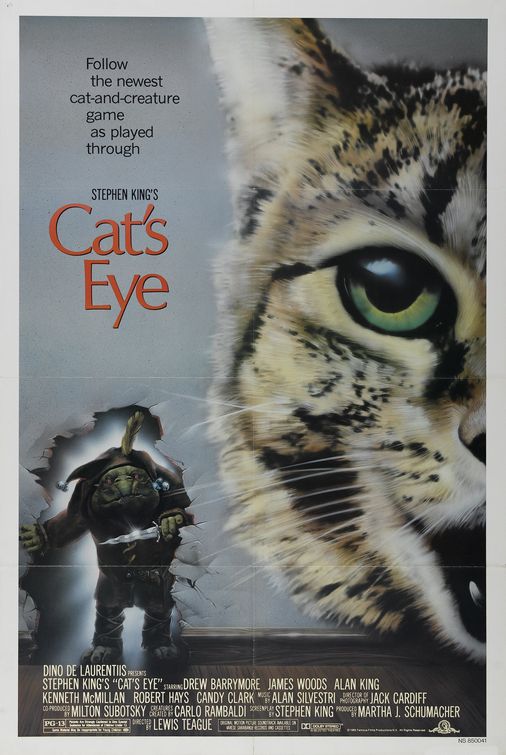Rejected By Rod(?) Part Twelve - Stephen King's Cat's Eye
 Wednesday, January 25, 2012 at 6:00AM
Wednesday, January 25, 2012 at 6:00AM Not everything I've written for FLICK ATTACK has made it to the show. Mr. Lott insists that these rapidly aging reviews will be posted eventually, but until then I'm just going to assume that they have been:
Rejected By Rod(?)
Stephen King's Cat's Eye
(1985)

At the risk of committing genre blasphemy, I have to say that when it comes to 80s Stephen King anthology movies, I’ve always preferred Lewis Teague’s Cat’s Eye to George Romero’s beloved Creepshow. That’s not to say I think Creepshow is a bad movie, just that I always felt its attempt at paying tribute to the old E.C. comic books resulted in a general lack of originality in its stories. The same can’t be said for Cat’s Eye, though, as the three tales it tells are all classic examples of King working at the height of his abilities.
Its stories linked together by a gifted feline’s search for an endangered young girl played by Drew Barrymore, the film begins with James Woods as a lifelong smoker who unwittingly gets involved with a company that takes its pledge to get him to quit the nasty habit far more seriously than anyone would ever imagine.
The second story features Airplane! star Robert Hays as a broke tennis pro who is forced to make his way around the five inch ledge of a skyscraper to satisfy the vengeful whim of a cuckolded gambler and in the third the heroic cat finally finds Barrymore and saves her from a tiny, evil troll determined to steal her breath while she sleeps at night.
The first two stories benefit greatly from the kind of dark humor so often found in King’s best work, while the third succeeds thanks to the amazing mechanical effects created by Italian FX whiz Carlo Rambaldi, whose tiny monster ranks right up there with E.T. as his greatest achievement (the less said about his King Kong the better).
Along with excellent cinematography by legendary British cameraman Jack Cardiff, the film is also well served by director Teague’s tongue in cheek approach, which includes multiple references to King’s previous work and clever use of The Police’s “Every Breath You Take” in both the first and final stories.

Reader Comments